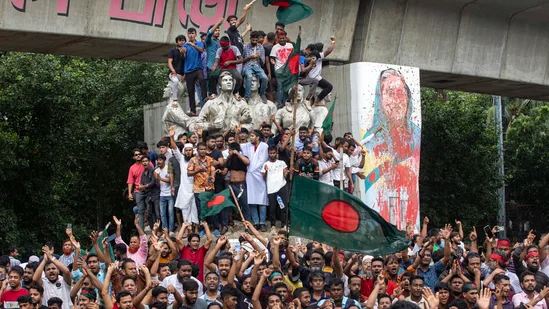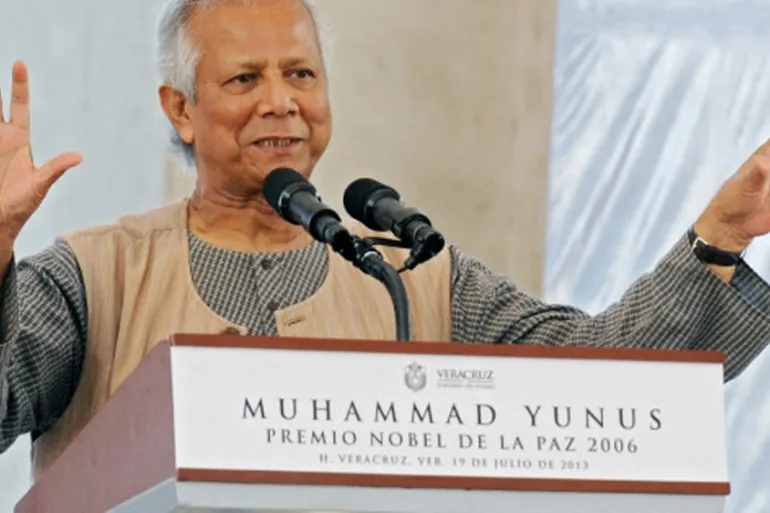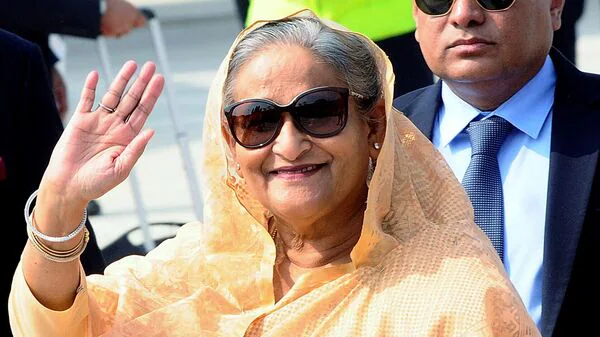The political scene in Bangladesh has been dramatically reshaped with the resignation of Prime Minister Sheikh Hasina, marking the end of her over two decades of political dominance.
Her departure follows weeks of intense anti-government protests that have shaken the nation to its core. Let’s explore the events leading up to her resignation, the immediate aftermath, and the implications for Bangladesh’s future.
The Rise and Rule of Sheikh Hasina
Sheikh Hasina, 76, has been a central figure in Bangladeshi politics for more than 20 years, serving as Prime Minister for multiple terms since she first took office in 1996.
Her leadership has been marked by significant economic growth and development, transforming Bangladesh from a struggling state into one of Asia’s rising economies.
However, her tenure has also been marred by allegations of authoritarianism, human rights abuses, and suppression of political opposition.
Unrest and Protests

The recent unrest began with protests against a controversial quota system for government jobs, which reserved a significant portion of positions for descendants of veterans of the 1971 independence war.
High unemployment rates and limited job opportunities made this quota system a highly contentious issue. As protests escalated, they evolved into a broader movement demanding democratic reforms and Hasina’s resignation.
Violent clashes between protesters and security forces resulted in numerous casualties, further fueling public anger. Reports indicate that up to 135 people may have been killed during the demonstrations.
The situation reached a boiling point when thousands of demonstrators stormed Hasina’s official residence and other buildings associated with her party and family.
The protestors barged in and looted whatever they could have found from ceiling fans to clothes, sarees and fish.
The Resignation and Aftermath
On August 5, 2024, Sheikh Hasina resigned and fled the country, reportedly seeking asylum in the U.K.
This move left a significant power vacuum in Bangladeshi politics. Her resignation was met with jubilant celebrations by protesters, who saw it as a victory for their cause.
However, the immediate aftermath has been chaotic, with attacks on government buildings and properties, as well as a surge in violence against religious minorities.
Formation of an Interim Government

In the wake of Hasina’s departure, the Discrimination Student Movement proposed the formation of an interim government led by Nobel Laureate Dr. Muhammad Yunus. This proposal was revealed by student leaders Nahid Islam, Asif Mahmud, and Abu Bakar Mazumdar.
They emphasized that no other form of government, particularly one supported or led by the military, would be acceptable to the protesters.
President Mohammed Shahabuddin responded to the crisis by ordering the release of jailed former Prime Minister Khaleda Zia and all students detained during the protests. He announced plans to form an interim government, call for new elections, and lift the national curfew.
International Reactions and Future Challenges
The international community has closely watched the unfolding events in Bangladesh. The United States commended the army for its restraint and called for a peaceful transition to a democratically elected government.
The European Union also urged an orderly transition. However, there has been no official reaction from neighboring India, which has historically had a significant influence on Bangladeshi politics.
Debapriya Bhattacharya, a senior economist with the Centre for Policy Dialogue in Dhaka, highlighted the challenges facing the new government. He noted that while there is euphoria in the streets, attacks on the Hindu minority have escalated, posing an immediate challenge to the new authorities.
The interim government will need to address these issues and ensure the protection of religious minorities.
A New Chapter for Bangladesh
Sheikh Hasina’s resignation marks the beginning of a new chapter in Bangladesh’s political history. Her departure has left a void that the new interim government must quickly fill to restore stability and order.
The protesters’ demands for democratic reforms, better job opportunities, and improvements to the education system will need to be addressed to prevent further unrest.
The next few months will be critical for Bangladesh as it navigates this transitional period. The interim government, led by Dr. Muhammad Yunus, will have to work diligently to meet the expectations of the public and ensure a peaceful and democratic future for the nation.
The international community will be watching closely, hoping for a smooth transition and the establishment of a stable and inclusive government.
Sheikh Hasina’s legacy will be a subject of debate for years to come. While her leadership saw significant economic progress, it was also characterized by allegations of authoritarianism and human rights abuses.
As Bangladesh moves forward, the new leaders will need to learn from the past and strive to build a more democratic and just society for all its citizens.





